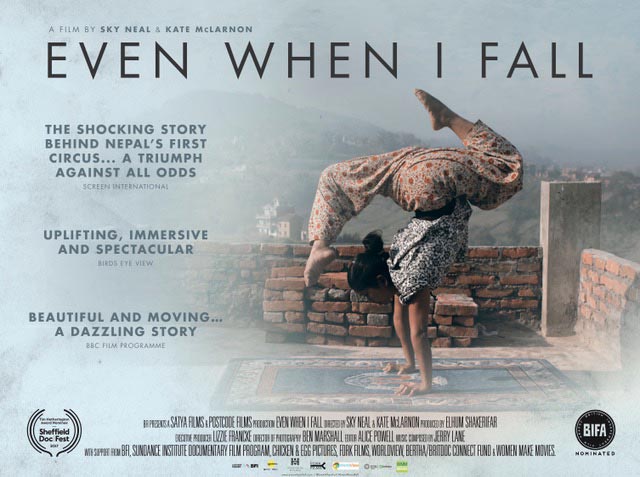From Trafficked Children to Circus Professionals - The Story of Circus Kathmandu - SOCIAL ENTREPRENEURSHIP BLOG SERIES NO 22
In the time span between 1998-2004 AD, more than 600 Nepali children, mostly below the age of 16, were rescued from different circuses in India. They were taken into a hostel after the rescue. Some of them reintegrated into the society after some years while some thought to start their own business aiming to end this long cycle of child trafficking. Bijaya Limbu, current president and founder of Circus Kathmandu was one of them. They started Circus Kathmandu in 2010 at the time where people used to humiliate them saying ‘trafficked child’ and it didn’t end there. The reintegration to society was never easy. They kept fighting the battle against their society’s strength. And they are still moving ahead getting stronger. It was a hard-hitting road but the journey was worth traveling. This conversation between Bikas Udhyami and Bijay explores things in detail.
How did Circus Kathmandu start?
We began it as a nonprofit organization in 2010 from the effort of 12 members including myself. All of us were once traffic victims and were sold to Indian circus through an agent. Later we got rescued by an organization and taken to a hostel in Kathmandu. It was our age to study but we were working in severe conditions there. We were happy with that rescue but the life after that was not easy. We had the desire to study but the survival was also necessary. So we thought to give a chance to the circus skill that we have got. So we started this organization and worked on towards our goal.
People didn’t have good views on our profession. They had the misconception that it was not a good thing. But for us, that was an art. It was our skill that can make us professional. We thought to work in this area so that we could change the mindset and also reduce the changes in trafficking.
In the beginning, we used to organize small performances. That had nice earning but we were not satisfied. Because it was not only about us, we needed to go to the community and make them aware of trafficking. We wanted to advocate to make our villages trafficking free. We started working towards that. We performed at schools, communities on several social awareness issues.
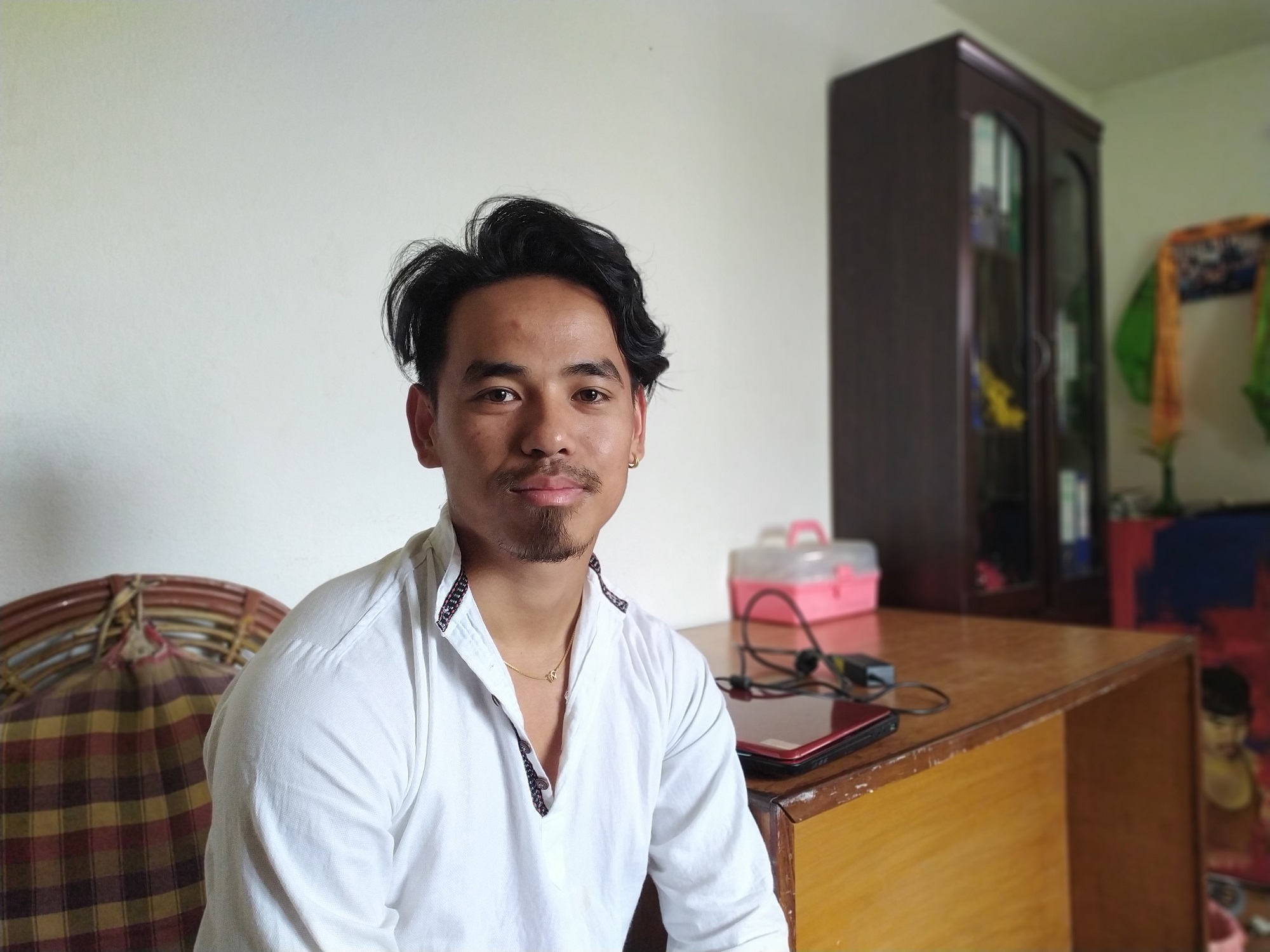
Circus Kathmandu is trying to make people understand that is a form of art like theatre and film and dance. We want to make such a society which welcomes everyone equally. Then only they would earn respect. We want to make them performers who can be proud of their art.
Who are the performers in your team now?
At the hostel, we stayed with children from mixed backgrounds. That got replicated in our team as well. One performer came from the street, and the rest of us are returnees from the circus. We are also keen to give space to many newcomers with interest and talent. We also organize the workshops named Sapana Project every Saturday. We reach to other children from various sectors and give the training opportunity.
In the introduction of a movie made on one of your performer’s life, ‘It is the triumph against all odds’ is written. What were those odds your organization went through?
After we were back from there, we didn’t have the courage to face society. This was the main struggle. We already were tagged as ‘trafficked’ that made us hard to adjust back. But with our effort, we now have space in society. We now can face the situation. And that made us think that we are not alone in this situation. Of course, there are others who are also suffering even today but we are happy to wave a hand to them and say ‘hold on friends, the road is difficult but you can reach here.’ This gives us great pleasure. Therefore we want to work on this area of awareness. We don’t want others to face the situation that we faced. At least now we are professional performers and we can try to do that.
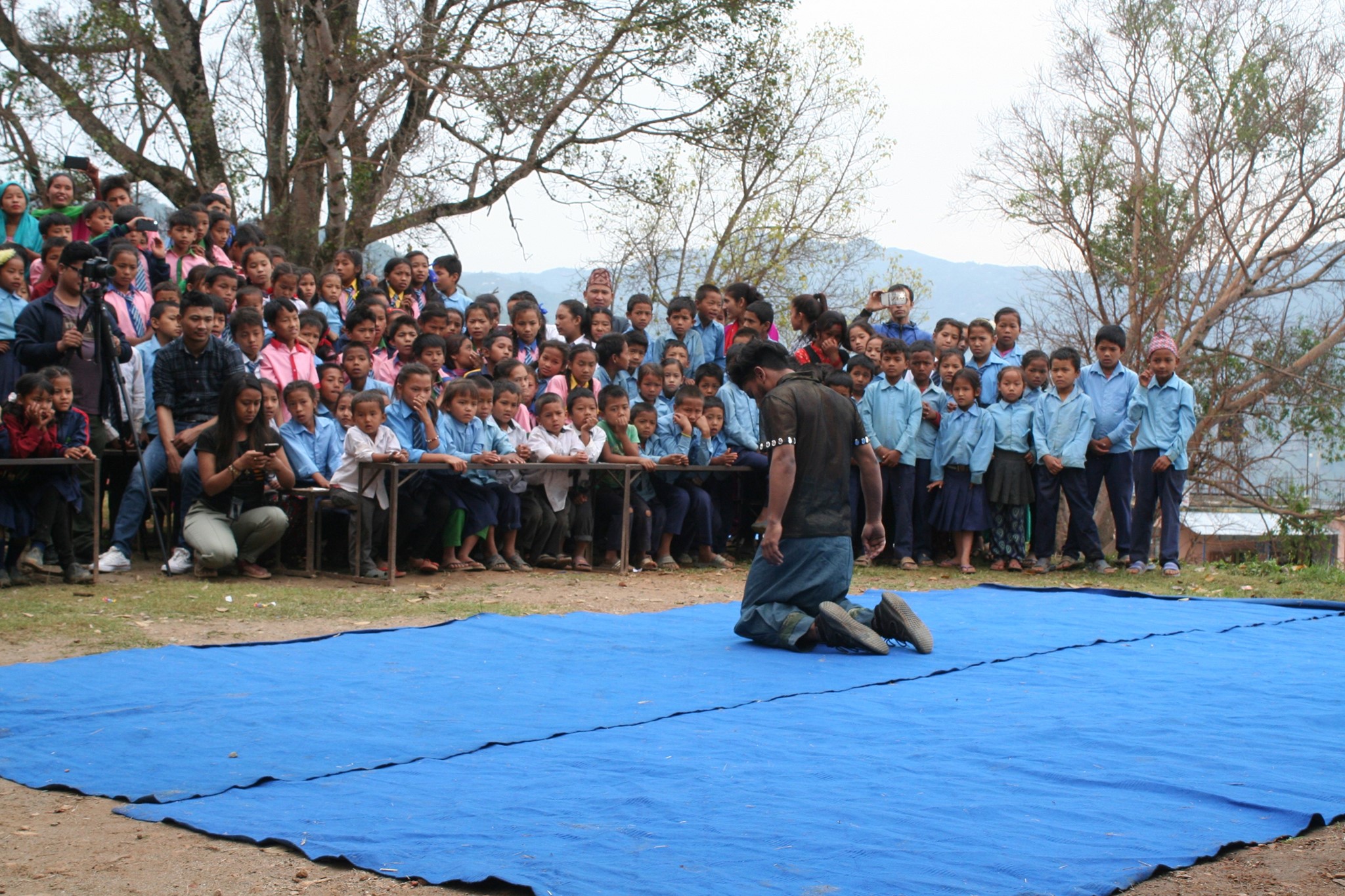
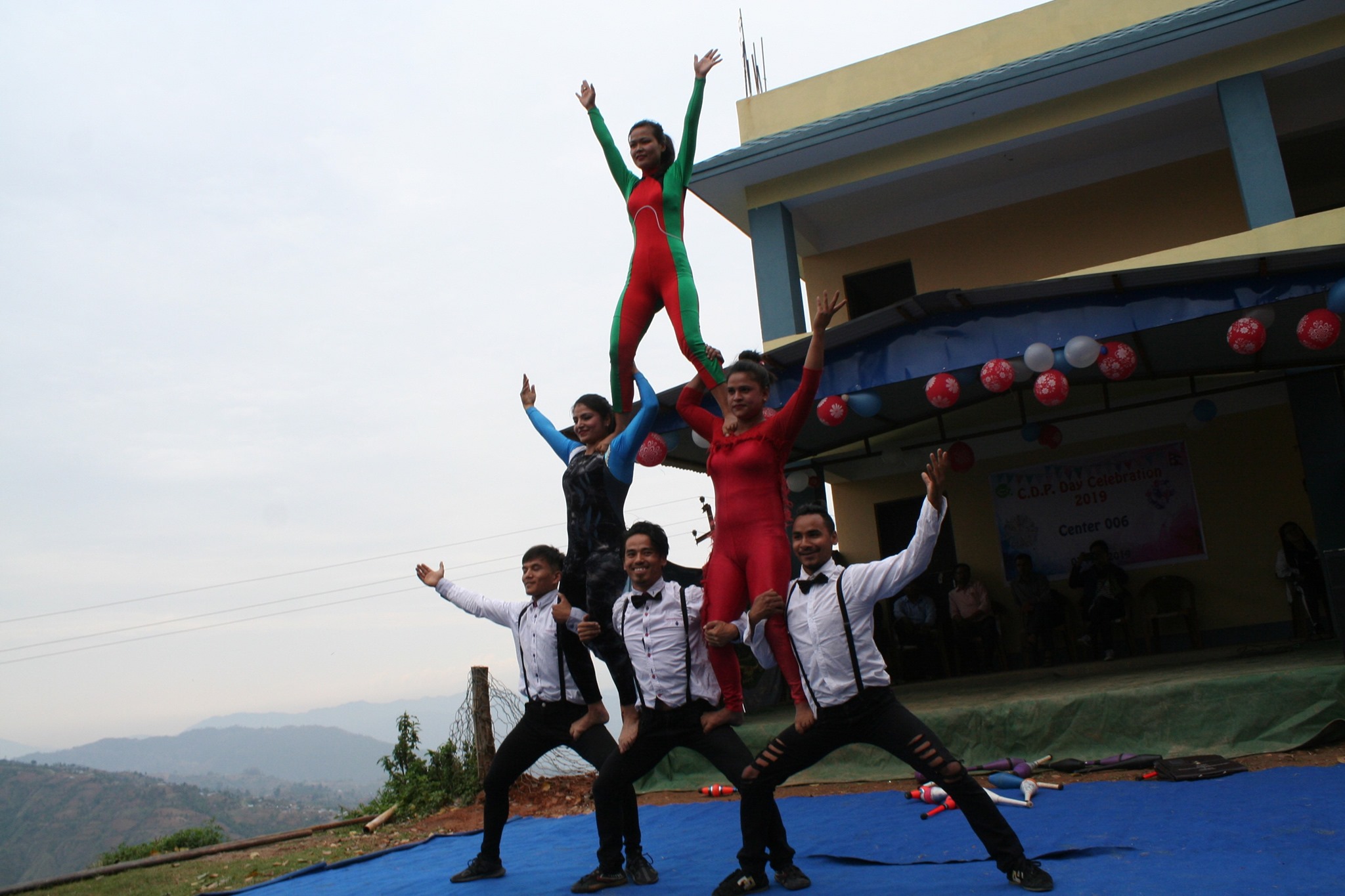
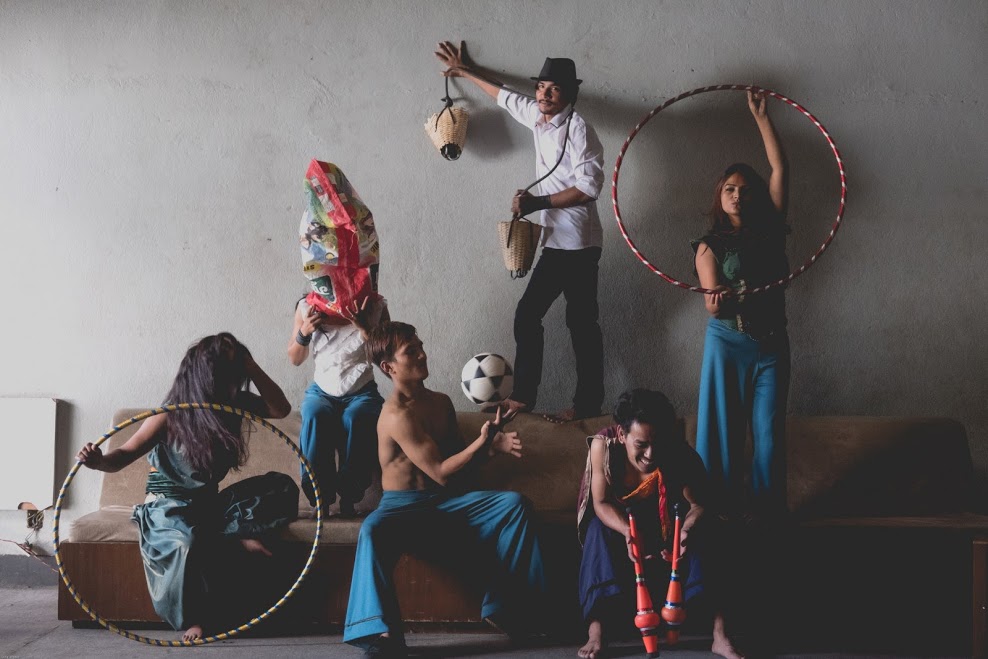
What are the issues that you cover in your performances?
In our performing site, we have two sides. One is advocacy where we perform drama using the circus skills. It is basically on issues like child marriage and trafficking. We reach to the districts where the problem is high and perform. We have performed on the districts like Ramichap, Sindhupalchok, etc. On our professional performing side, we prepare the show on certain stories. It has a physical form. We use our skill and make a show for at least 1 hour. We organize the program in ticket twice each year. We also perform in gigs and events. Depending on the demand, we sometimes create a performance of 4-5 minutes using different faculties like acrobatics. It depends on our agreement with the organizers. We are also collaborating with theatre forms like Forum Theatre, that has direct reach to the public.
How hard it is to challenge and change people’s mindset? How is this working towards benefiting the entire scenario?
All of our performers are independent now. They are earning from their skills. They now have the confidence to face the society and have a dignified life. In society, where there was a negative feeling towards this, we are able to earn respect from the society. They were judging us wrong because somebody said it is. Now we are proving it is not. Now we feel people are understanding. This feeling encourages us every day. We feel the discrimination going slowly down. Discrimination happens when people fail to understand your part. We are making them understand that unseen reality.
Through the outreach programs, that we do on highly trafficking inflected areas, we are spreading the message against any kinds of trafficking. At the beginning of our performance, we share our story about how we got trafficked so that they would think twice on their decisions. It is helping others not to do the same mistake that we did.
How many performances do you have each year?
Every day we are growing but this is still not the place we want to be. We have performed in bigger schools like French and British schools. Also, we performed small schools. We are giving workshops and dance classes to these places. In number, we have around 35 shows every year. Including all, it comes above 80. Our pricing differs according to the theme of the event. If them is social, we become more flexible than the corporate approach. But as I said before, this is not enough. We don’t only want to perform at schools rather want to spread such a message where a boy from a small class can dream to be a circus artist.
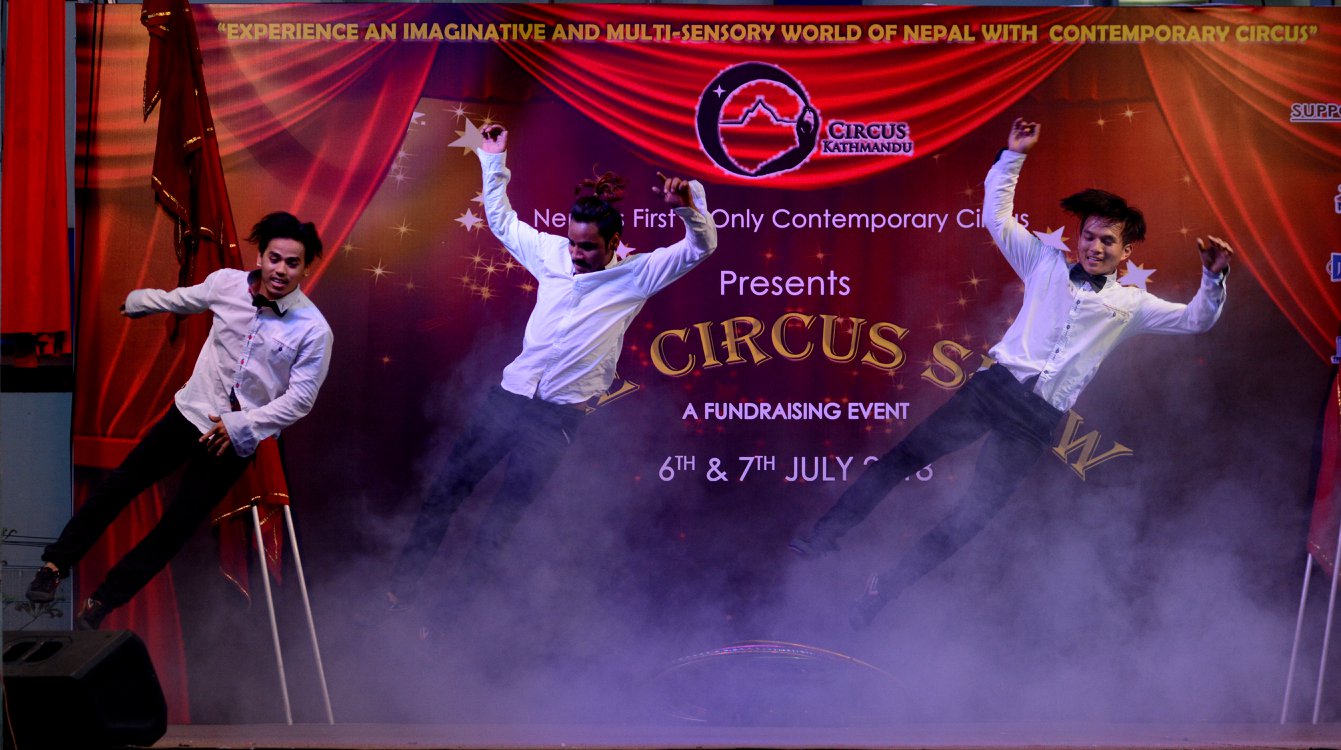
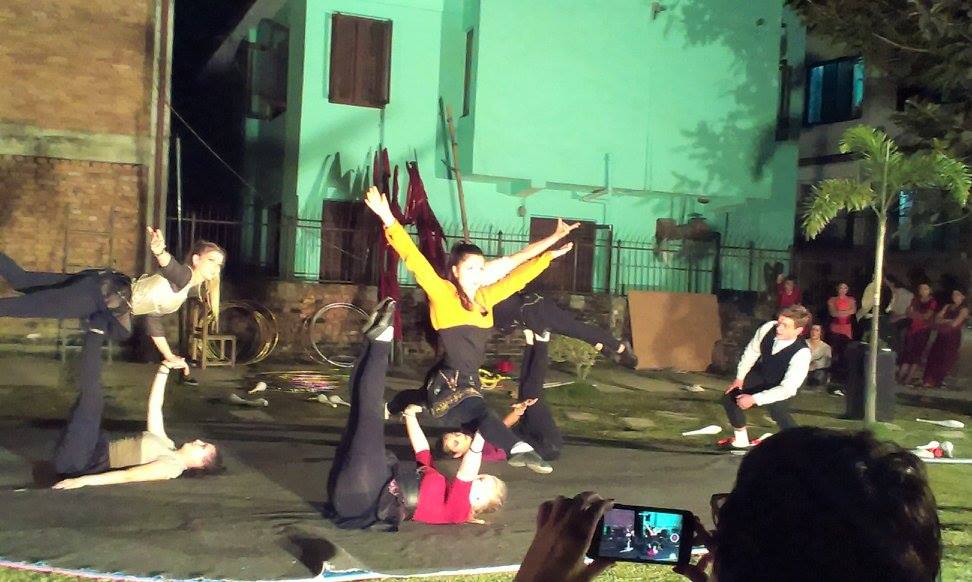
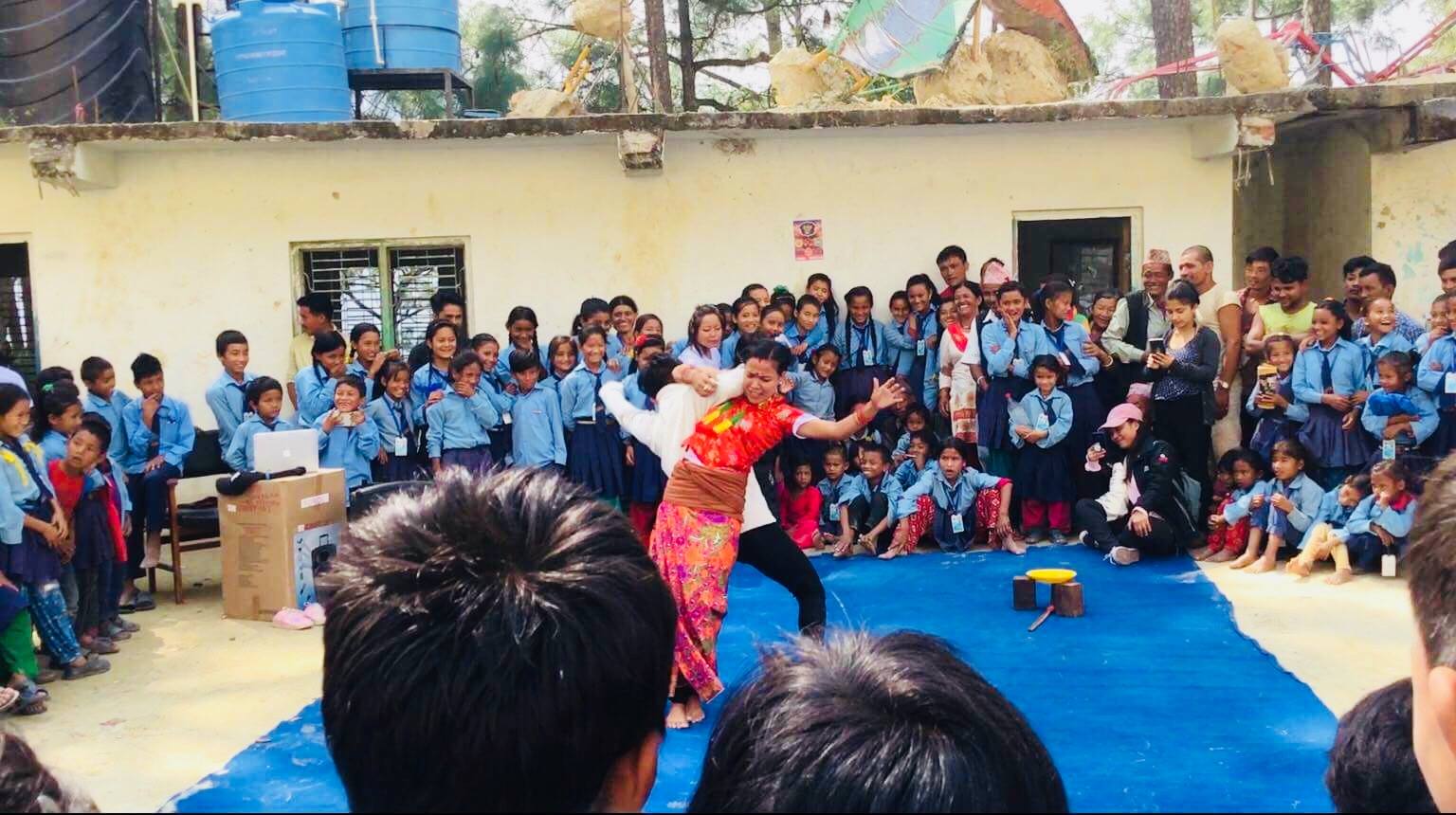
What are the things you teach to the children who join your workshops?
First, we share our story so that they would be motivated. Then we work on finding their inner strength and recognize which area of circus they can fit in. After that, the training starts. A lot of things depend on their age and thinking capacity. We give them a creative space. For the smaller ones, we teach them the skills via entertainment.
How do you think your initiative is creating a social impact?
First of all, all the traffic survivors who are with us are having a dignified life in the society. They are taking leadership to change the perception of people. Now someone can look at us and get encouraged. We are only 8 now out of 12 now in our team. Four girls got married and went their home. A few years back, you could not imagine a trafficked girl getting married, having a family and reintegrated into society. This is the hint that, though on a small scale, our effort is changing the social acceptance.
When we share our stories to the community people, their eyes melt. They participate in the Forum Theatre sessions and give their thought on what they would do to stop someone from trafficking. Previously there was the understanding that only women are trafficked. Now we are raising this child trafficking issue and making people cautious towards every approach that comes for their child. And for the already trafficked persons and their families, we have spread the message of hope.
At that time, all of us are self-sustained now. Despite many limitations, we are climbing the mountain. Our practice materials are expensive. The practice session is too risky for the small industry, despite that we are dedicated to walking long.
At last any recommendations you want to give to the aspiring young social entrepreneurs?
In your business, many ups and down will come but you should not give up your dream. If you have not started, take time to learn the market and scope of your activities. If you have already started, motivate yourself to make things better. Because like engine, it should keep running.
To know more about them: https://circuskathmandu.com/
